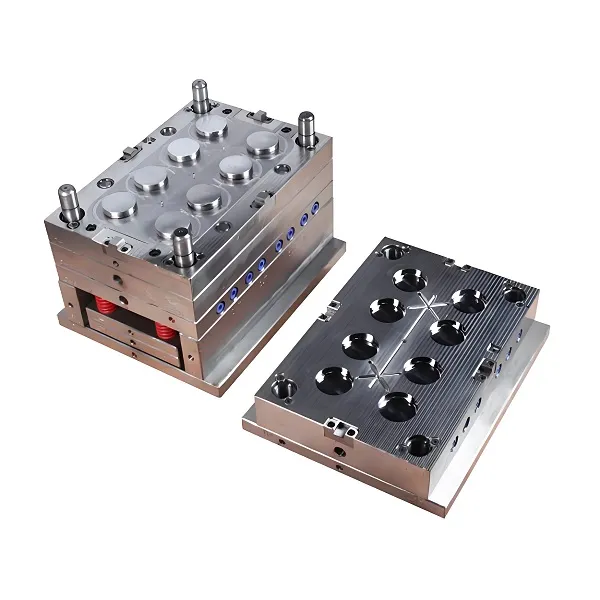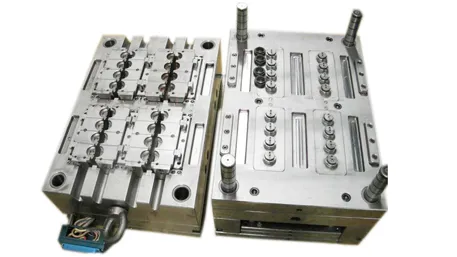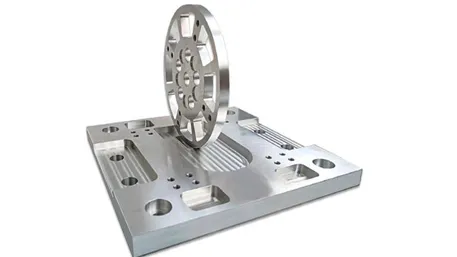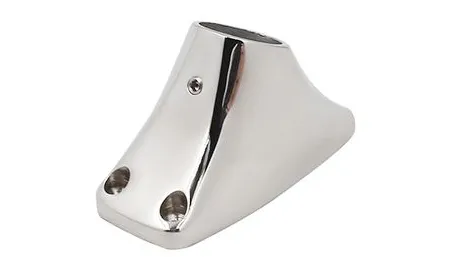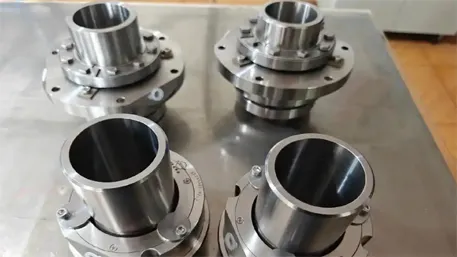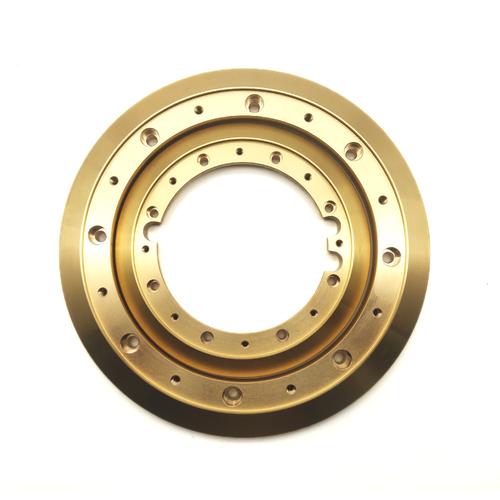Introduction
Driven by advanced manufacturing and personalized demands, the custom plastic parts service has become an important support in the industrial field. This article systematically analyzes the core value of custom plastic parts from material engineering, application scenarios to full – process technical control, and provides users with a scientific and rigorous decision – making reference by combining professional data and industry terms.
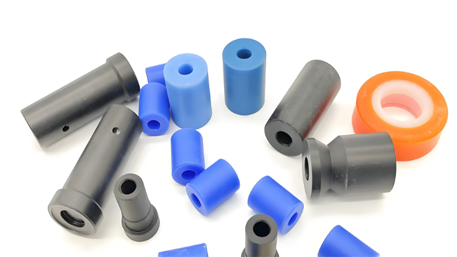
I. Material Engineering: Characteristic Data and Product Compatibility
The core competitiveness of custom plastic parts stems from the precise selection of materials. The following are the key characteristics and typical applications of commonly used engineering plastics:
The core competitiveness of custom plastic parts stems from the precise selection of materials. The following are the key characteristics and typical applications of commonly used engineering plastics:
Polyoxymethylene (POM)
- Mechanical Properties: Tensile strength is 60 – 70 MPa, Rockwell hardness (HRR) is 118 – 122, and it has excellent wear resistance (friction coefficient is 0.1 – 0.3).
- Thermal Properties: Heat deflection temperature (HDT, 0.45 MPa) is 110 – 136℃, and the long – term service temperature ranges from – 40℃ to 100℃.
- Applications: It is used in high – wear – resistance scenarios such as precision gears, bearings, and valve parts because its self – lubrication and rigidity are close to those of metals.
Polyetheretherketone (PEEK)
- Mechanical Properties: Tensile strength is 90 – 100 MPa, elongation at break is 30 – 50%, and it has outstanding fatigue resistance.
- Thermal Properties: Melting point is 343℃, heat deflection temperature is 160 – 165℃ (1.82 MPa), and it can be used for a long – term at 250℃.
- Applications: It is applied in aerospace components and medical implant devices (such as intervertebral fusion cages) due to its high – temperature resistance, corrosion resistance, and biocompatibility.
Polyphenylene Sulfide (PPS)
- Mechanical Properties: Tensile strength is 65 – 85 MPa, flexural modulus is 3.5 – 4.5 GPa, and it has excellent rigidity.
- Thermal Properties: Heat deflection temperature is 260℃ (1.82 MPa), and the long – term service temperature reaches 200℃.
- Applications: It is used in automotive engine parts (such as turbocharger impellers) and chemical pipelines because of its chemical corrosion resistance and high – temperature stability.
Carbon Fiber Reinforced Nylon (CF/PA)
- Mechanical Properties: Tensile strength is 180 – 220 MPa, flexural modulus is 12 – 15 GPa, and the specific gravity is only 1.25 g/cm³.
- Applications: It is used in lightweight automotive structural parts and UAV frames, combining the advantages of high strength and low weight.
Based on the mechanical, thermal, and chemical resistance data of materials, the custom service can accurately match product requirements. For example, PEEK (which meets the ISO 10993 biocompatibility standard) is selected for the medical field, and CF/PA is used in the automotive industry to achieve a weight reduction of more than 30%.
II. Application Fields: Technical Implementation of Scenario – based Customization
The custom plastic parts service demonstrates unique value in the following fields:
The custom plastic parts service demonstrates unique value in the following fields:
Automotive Manufacturing
- Demands: Lightweight, high – temperature resistance, and impact resistance.
- Solutions:
- Long – glass – fiber – reinforced polypropylene (LFT – PP) is used to manufacture bumpers, reducing the weight by 40% while meeting the collision strength requirements.
- PPS is selected for parts around the engine, which can withstand the oil and high – temperature environment above 200℃.
Medical Equipment
- Demands: Biocompatibility, sterilization tolerance, and precise structure.
- Solutions:
- Polyetherimide (PEI) is used for surgical instrument handles, which has both high strength and γ – ray sterilization tolerance.
- Silicone or polyurethane (PU) is used for medical catheters, meeting the flexibility and biosecurity standards (such as USP Class VI).
Aerospace
- Demands: High specific strength, resistance to extreme environments.
- Solutions:
- PEEK composites are used for aircraft interior parts, maintaining stable performance in the temperature range from – 60℃ to 180℃.
- Polyphenylbenzimidazole (PBI) is used for satellite electronic enclosures, which is radiation – resistant and can withstand temperatures above 300℃.
Electronics Industry
- Demands: Insulation, flame retardancy, and precision molding.
- Solutions:
- Liquid crystal polymer (LCP) is selected for connectors. Its low dielectric constant (Dk = 2.9) and high flame retardancy (UL94 V – 0) meet the requirements of high – frequency transmission.
- Epoxy resin is used for chip packaging, achieving micron – level precision through compression molding.
III. The Technical Closed – loop and Data Support of Custom Services
Simulation – Driven Design Optimization
- Using mold – flow analysis software (such as Moldflow) to simulate the injection – molding process, predict the melt – flow front, cooling time, and residual stress, and control the warpage deformation of plastic parts within 0.1 mm/m.
- Verifying the structural strength through finite element analysis (FEA). For example, simulating the tooth – root stress of a POM gear to ensure that it has no fatigue fracture under 10⁶ cycles of load.
Precise Control of Process Parameters
- In injection molding, by real – time monitoring of the melt temperature (error ±2℃), mold temperature (error ±1℃), and injection pressure (accuracy ±5%), the dimensional tolerance of plastic parts can reach IT8 grade.
- For high – temperature materials such as PEEK, a special screw and heating system are used to shorten the molding cycle by more than 30%.
Digital System for Quality Inspection
- A coordinate measuring machine (CMM) is used to conduct full – size inspection of plastic parts, with a dimensional repeatability accuracy of ±0.005 mm.
- AI vision inspection technology is adopted, with a defect recognition accuracy of over 99.5%, including micro – flash and bubbles less than 0.05 mm.
IV. User Value and Industry Trends
The custom plastic parts service creates significant value for users through material innovation and process optimization:
The custom plastic parts service creates significant value for users through material innovation and process optimization:
- Cost Optimization: Through topological optimization design, the weight of a certain automotive bracket is reduced by 45%, and the material cost is reduced by 28%.
- Performance Improvement: The fatigue life of carbon – fiber – reinforced plastic (CFRP) parts is 3 times longer than that of traditional metal parts.
- Delivery Efficiency: Based on the digital design platform, the cycle from demand confirmation to delivery sample is shortened to 7 working days.
In the future, the custom service will develop towards intelligence and greenness. For example:
- Introducing generative design to generate lightweight structures, with a material utilization rate of over 90%.
- Promoting bio – based materials (such as polylactic acid PLA) to achieve 100% biodegradability in the packaging field.
FAQ
Q1: How to choose the material for custom plastic parts?
A: It is necessary to comprehensively consider the part’s usage environment (such as temperature, chemical medium), mechanical property requirements (tensile strength, wear resistance), and cost. For example, PPS can be selected for automotive engine parts (resistant to 200℃ high temperature), and PEEK is recommended for medical implants (with biocompatibility certification).
Q1: How to choose the material for custom plastic parts?
A: It is necessary to comprehensively consider the part’s usage environment (such as temperature, chemical medium), mechanical property requirements (tensile strength, wear resistance), and cost. For example, PPS can be selected for automotive engine parts (resistant to 200℃ high temperature), and PEEK is recommended for medical implants (with biocompatibility certification).
Q2: What is the dimensional accuracy that custom parts can achieve?
A: Through precision injection molding or CNC processing, the dimensional tolerance can usually be controlled within ±0.05 mm, and in some high – precision scenarios (such as optical lenses), it can reach ±0.01 mm.
A: Through precision injection molding or CNC processing, the dimensional tolerance can usually be controlled within ±0.05 mm, and in some high – precision scenarios (such as optical lenses), it can reach ±0.01 mm.
Q3: Does small – batch customization support complex structures?
A: Yes. 3D printing (such as SLS process) can directly form complex topological structures, and micro – injection – molding technology can achieve precision plastic parts with a wall thickness of 0.1 mm, meeting the small – batch personalized needs.
A: Yes. 3D printing (such as SLS process) can directly form complex topological structures, and micro – injection – molding technology can achieve precision plastic parts with a wall thickness of 0.1 mm, meeting the small – batch personalized needs.
Q4: How to verify the reliability of custom parts?
A: Service providers usually provide complete test reports, including mechanical property tests (tensile, impact), environmental tests (high – low – temperature cycling, salt – spray corrosion), and life tests (such as 10⁵ fatigue cycles).
A: Service providers usually provide complete test reports, including mechanical property tests (tensile, impact), environmental tests (high – low – temperature cycling, salt – spray corrosion), and life tests (such as 10⁵ fatigue cycles).
Inquire Now for a Professional Custom Solution
If you need to customize high – performance plastic parts, please feel free to contact us via online message. Our engineering team will:
If you need to customize high – performance plastic parts, please feel free to contact us via online message. Our engineering team will:
- Provide material selection and simulation analysis according to your application scenario.
- Develop high – precision processing technology to ensure dimensional tolerance and surface quality.
- Provide third – party test reports to ensure that products meet industry standards.
Whether it is the extreme – environment requirements of aerospace or the biosecurity requirements of the medical field, we build customized solutions based on material science and supported by engineering technology. Click to leave a message and start your professional customization journey!

